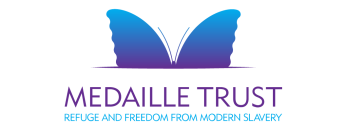No. 1 in a series of articles reporting on the responses of Caritas member organisations to the Covid-19 pandemic.
Catholics need to keep the poor, vulnerable and isolated at the ‘forefront of our minds’ during the coronavirus pandemic, according to the Chair of Caritas Social Action Network.
Bishop Terence Drainey of Middlesbrough has encouraged support for Caritas and all charities which are facing increased costs, fewer volunteers and a potential loss of income. He has thanked organisations within the Caritas network: ‘Their dedication all year round is an example to Catholics of how we can put our faith into action and live as missionary disciples.’
A letter went out from Bishop Declan Lang of Clifton to all Clifton parishes supporting initiatives reaching out to the vulnerable. For example, St Nicholas of Tolentino parish in Bristol operates a food bank, distributes food parcels to the needy, and runs a support centre for asylum-seekers.
Caritas Salford is continuing all front-line services to homeless, destitute and elderly people and refugees, such as providing food parcels. Staff and volunteers are coming forward to be redeployed to services that are understaffed due to the self-isolation policy. People who are homeless have been moved into single room accommodation.
The Refugee Education project serves 80 learners on Zoom every evening. Director of Caritas Salford, Mark Wiggin, said the charity was ‘coping but each day brings new challenges to deliver our services to the most vulnerable.’ He was concerned that at a time when virtual communication is widespread, many vulnerable people are not online. He was grateful for ‘a brilliant response from funders and many offering emergency funds.
Caritas Westminster has publicised a list of remote volunteering opportunities, providing contact details for local volunteer centres coordinating activity at a borough level. Guidance on volunteering safely is provided. Support for London’s estimated 2,000 foodbanks in London is encouraged, plus a plea for soap.
The Mercy Hub at St Mary’s Cathedral in Newcastle is still offering sandwiches and hot drinks from its gate thanks to the dedication of volunteers. The coordinator, Jeremy Cain, said, ‘Two of them had to pull out since last week due to health concerns but I got a great response to an appeal I put out and we plan to be opening again this morning.’ He felt, ‘it’s an example of the effectiveness of our networks and a willingness to work together.’
The Catholic Children’s Society (Westminster) has been supporting growing numbers of families facing desperate situations as a result of the coronavirus. ‘Through our close links with schools, we’ve been able to identify the most disadvantaged families who are now at breaking point due to redundancies and loss of work,’ deputy Chief Executive Greg Brister said.
‘With food banks running low, many of these families are struggling to feed their children.’ The Society has used its Crisis Fund to provide emergency grants to more than 1,200 of the most vulnerable families, and more than 2,000 children, to help with food and basic subsistence costs.
‘It is also reconfiguring its school counselling service, delivered to more than 80 schools and supporting thousands of children each year who are struggling with complex mental health difficulties. Staff are now working remotely and are looking to provide weekly check-in sessions via telephone or video call. Along with providing consultations for school staff and parents, we hope to reduce children’s anxieties and help enhance their wellbeing and resilience at this very challenging time.’
The Jesuit Refugee Service UK (JRS UK) has had to join many other refugee organisations in suspending its weekly drop-in Day Centre, refugee activities and detention visiting service. However, services have been adapted to provide increased phone support. A new Emergency Response system made 27 deliveries last week of essential food and toiletry packs to destitute refugees, and volunteers are being sought to assist with distribution.
Providing mobile phone top up cards allows refugees to arrange vital legal and healthcare appointments, access the Web and remain in contact with family and friends. JRS joined with other organisations to write to Government and local authorities advocating for the protection of people experiencing homelessness due to migration status during Covid-19.
‘The coronavirus is of particular concern for the refugees we support at JRS UK; many are in poor general health and almost all are in precarious housing situations and will likely become even more isolated as they struggle to survive without the financial and practical help we normally provide’, said Sarah Teather, Director of JRS UK.
‘Physical presence and accompaniment form such a big part of our work and are the clearest expression of mission, and we call on our supporters to join us in expressing our solidarity and support by donating to our Refugee Friends’ Hardship Fund or volunteering with us as part of our Emergency Response Team.’
This post is adapted from an article by Ellen Teague, first published in ‘The Tablet’ in association with CSAN.



